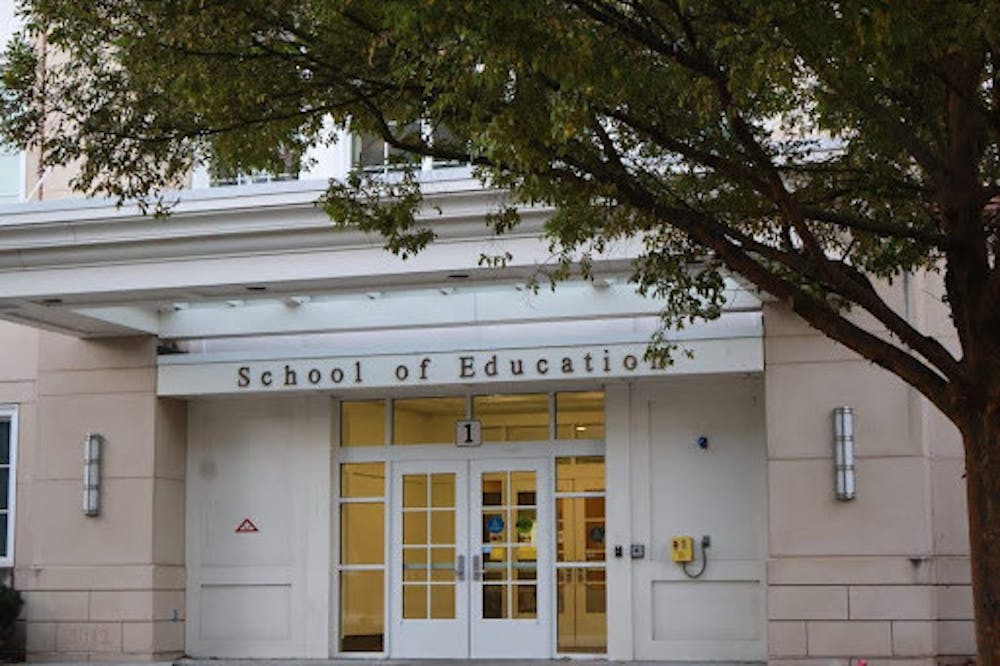By Raeanne Raccagno
Copy Editor
The College’s School of Education created a new inclusive education program that will bring changes to the education programs in the fall 2025 semester, in accordance with New Jersey’s code updates and to enhance readiness for future teachers.
A few years ago, New Jersey changed the code that dictates the core and curriculum for college education programs, and one change that some found controversial was that education majors were not required to have a content area of study. Following the code changes, other universities decided to remove the requirement for education students to have dual majors, but the College wanted to keep the structure.
Another change the state brought is having all future teachers receive more training for special education, which started the planning of the new inclusive education program.
“Basically, what we did was sort of Frankenstein urban ed, traditional ed and special ed into one program,” Tabitha Dell'Angelo, interim dean for the School of Education and an urban education professor, said. “We're talking about people who are training primarily to teach preschool to grade six. So now, all of those people, their first four years, are going to look almost identical.”
When students become upperclassmen in the program, they can choose to have an endorsement in ESL, teacher of the deaf or hard of hearing or teacher of students with disabilities. Students in the program will have educational foundations while learning about special education law, enhanced literacy and ESL.
Currently, urban or special education majors must stay a fifth year to complete their course of study, but with the new program, students will be able to take their certificate and go directly into the teaching force or still choose to stay for a fifth year.
Dell’Angelo also mentioned how having this new flexibility for students will hopefully help the current teacher shortage happening around the country.
“The current program is dynamite,” Dell'Angelo said. “We've been preparing fabulous teachers for a really long time. So it's not like if you're in the current program, it's not a good program. It's just that we made changes for the better.”
Dell’Angelo said that students in the past were not able to take their fifth year due to cost, and this program will also help with that issue.
To help with the timeline of the program, the eight content areas that education majors choose as their dual study were all cut down to have an eight-course requirement. Right now, only two of the content areas were not able to cut their content down to eight courses, but they are still working with the department to see if they can minimize to eight as well.
“It's cutting costs, it's helping teachers get rounded and it's a new program that's gonna be more effective as they claim,” Amanda Schwegler, a first-year special education and early childhood major specializing in history, said.
Schwegler said she thinks the new program will help better prepare students for any possible teaching scenario in the future where they accommodate each child and their individual needs in a classroom.
Freshman education students were called to a mandatory meeting on March 26 to learn about the changes to the program and to let them know that they have the option to switch into the program now.
Dell’Angelo said New Jersey’s Department of Education has been helpful with the planning of the program over the past two years and expressing their own fondness of the changes to help students have more readiness for the job force.
“To walk into a space every day where you feel like, ‘I might not be able to do a good job,’ that's a lot to carry,” Dell’Angelo said. “So I do think our community partners and local employers are very excited about having students who are going to come feeling more ready and more confident that they have the competencies they need to do well in their job.”
According to Dell’Angelo, on April 17, New Jersey’s Department of Education sent out a letter in response to the United States Department of Education's request for additional certifications of compliance with Title VI of the Civil Rights Act of 1964 and the U.S. Supreme Court’s decision in SFFA v. Harvard in 2023.
“As the country is being asked to do things like turn their backs on inclusion, we're going like full force,” Dell’Angelo said. “I do hope that people look at TCNJ and the School of Education and say they're sticking to their values, they're sticking to what they know is good for kids and good for schools.”







